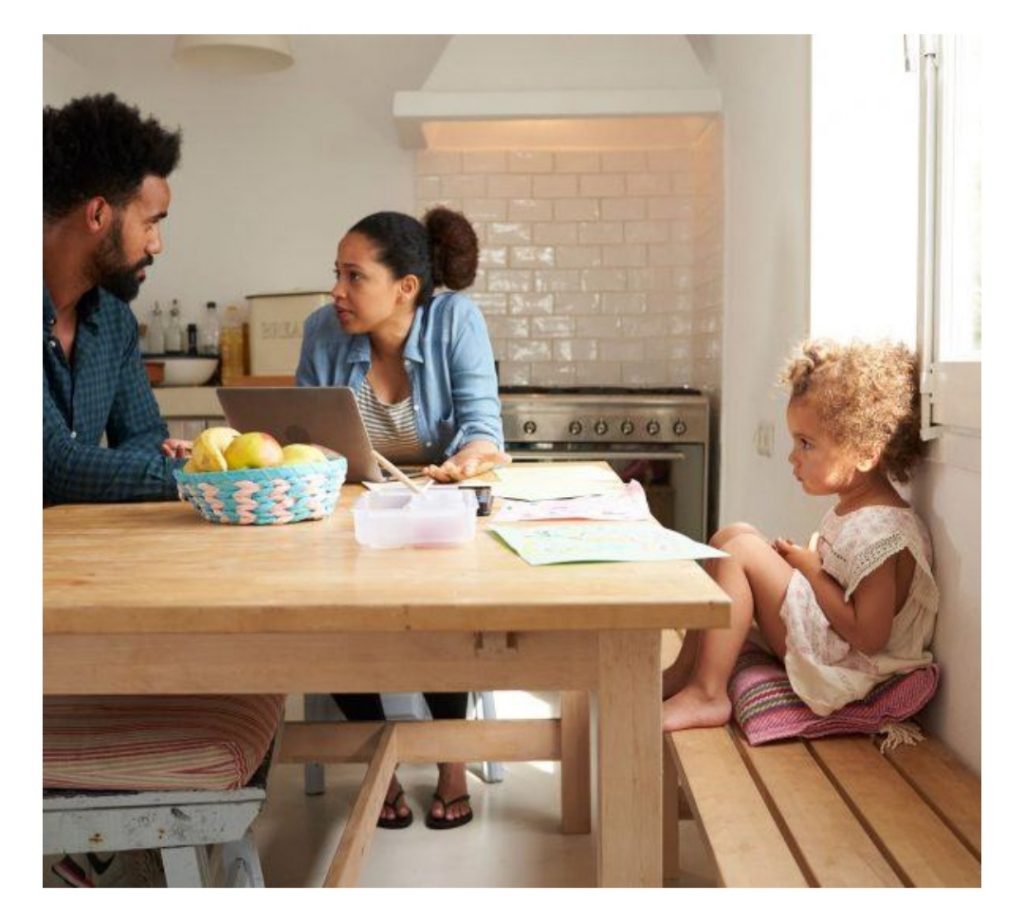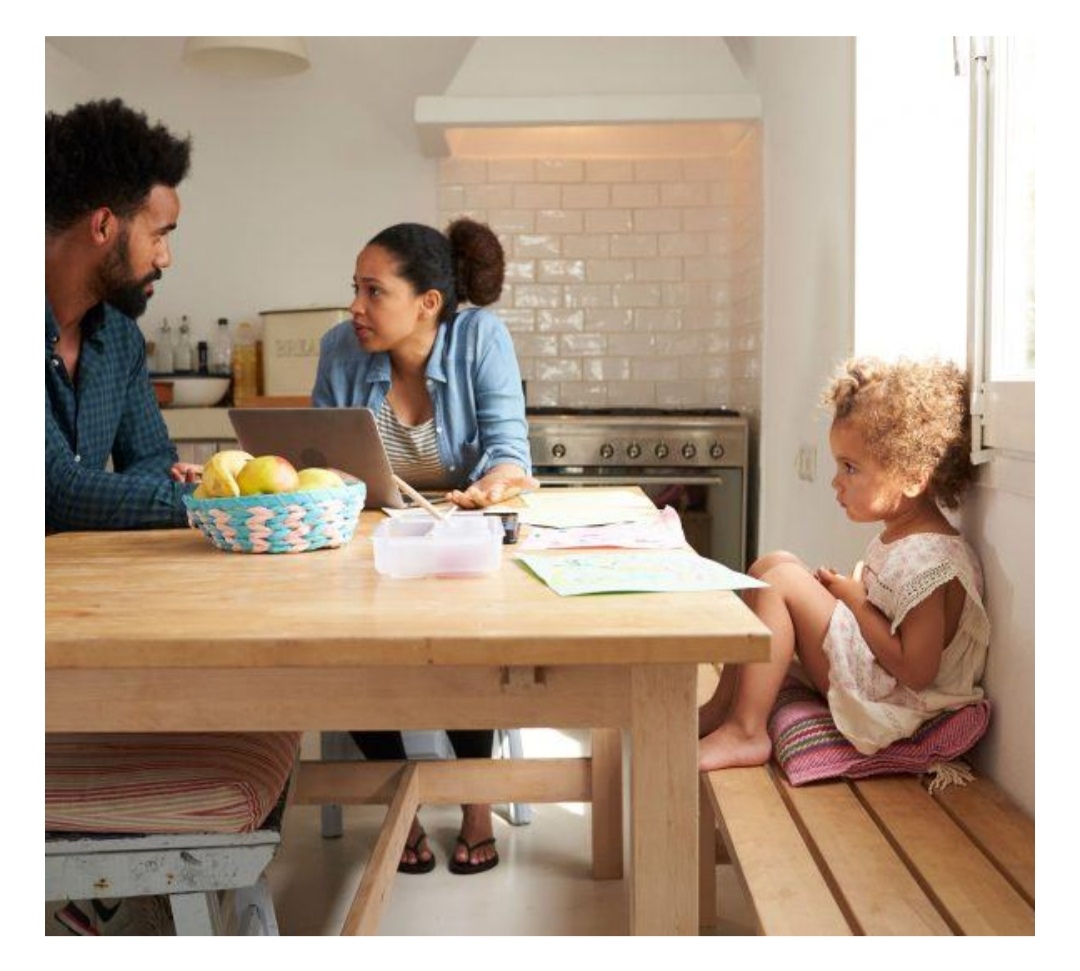TURN TOWARD YOUR CHILD TO NURTURE INTIMACY
Laura Markham

Intimacy is the glue that holds families together. It’s what connects us over the years and across the miles. It’s what gets us through the hard times, and what makes the good times even better. It’s the grease that smooths the rough interactions of everyday life, and the honey that makes it all worth it.
Intimacy is hard to define, but we all know when we’re feeling it. Whether it’s snuggling in the silence of companionship with your partner or crying on your best friend’s shoulder, intimacy is when we feel connected.
How humans build connections with each other, how we deepen them, and how we repair them when they fray is both as simple as a warm smile, yet also as mysterious and unsettling as the way the ground lurches when we see a picture of someone we have loved and lost.
The Gottman Institute has distilled the creation of intimate relationships down to their practical essence. It turns out that the building blocks of connection are the small overtures we make to each other every day, and the way our loved ones respond. These are “bids,” as in “bids for attention.” We could also call them overtures, as in the opening movements of an opera, which relies on harmony to succeed.
How bids for attention work
In happy relationships, whether between romantic partners, parents and children, friends, or coworkers, bids are made and responded to in a positive, even if small, way. It almost doesn’t matter what the bid is about; the process of reaching out and receiving a response builds the relationship. It also increases the level of trust so that we are more likely to reach out to that person again, and the content of the bids deepens.
If someone begins a conversation with “I’m worried about my job” and receives an empathetic response, they’re likely to elaborate and maybe ask their partner for support. Their trust in reaching out is rewarded with caring. They both end the interaction feeling closer.
If, on the other hand, their comment is ignored, or greeted with anything that doesn’t feel empathetic, they’re unlikely to make themselves vulnerable, and the relationship loses a chance to deepen. In fact, they’re hurt, so a little wall gets built, and they may be less likely to make bids like that in the future.
Our relationship with our child is built on how we respond to their bids
The same process is enacted with our children in hundreds of daily interactions. If you ask your middle schooler about the upcoming school dance and receive an engaged response, you might venture further and ask whether she’s nervous to take the conversation to a deeper level. If, on the other hand, her response is surly, you might back off.
And, of course, children often test us by saying something negative to see if we’ll empathize. If we respond to their bids with understanding, even though they’re expressing negativity, they’ll trust that we can handle their authentic feelings, and they’ll open up more.
But if we ignore, deny their feelings, correct them or judge, they’ll shut down. If this interaction is repeated often, kids get in the habit of holding their feelings inside. Not only do they not reach out to us, but they more frequently reject our bids to connect with them.
How to use bids to nurture intimacy with your child
1. Notice your child’s bids to you.
The inconvenient thing about a bid from your child is that they initiate whenever they want to, and you can count on being busy doing something else. It takes real self-discipline to tear yourself away from your screen to answer a child’s question, but how you respond to their overture is crucial in building closeness. If you don’t give them your full attention, you’ll have not really responded, or worse, turned away from their bid.
Later, when you try to get your child to tell you about what happened at school today, that’s your bid, and by then, they’ve shut down because you didn’t respond to their initial bid. To support yourself in being more present and available, make it a practice to turn off your screens when you’re with your child.
2. Train yourself to respond with empathy, no matter what the comment is.
If your daughter climbs into the car after school and greets you with a negative comment like “Dad, you know I hate that music, can’t we listen to my music?” or “Mom, I had a terrible day and it’s all your fault because you…” that’s a setup for an argument. But it’s also a bid; she’s asking if you’ll commiserate with her, if you care about what matters to her, if you’ll listen to her problems so she can process her feelings, and if you’ll help her make things better.
You’re only human, so naturally, you feel like snapping at her. But if you can take a deep breath and respond with empathy, you’ll find you can turn the entire situation around. So you might say:
“Really, you don’t like the Rolling Stones? Okay, I’ll turn this off and we can talk while we drive about what music to play so we can find something we both like.”
Or:
“Wow, you sound like you had a really terrible day! Tell me about it.”
Later, of course, you can ask if she really thinks her terrible day was all your fault. She’ll almost certainly apologize, and you can tell her that you understand, that it’s okay. In the meantime, instead of a fight, you’ve deepened your relationship.
3. If you don’t get the response you want when you reach out, step back and watch how you initiate.
Are you inviting a positive response? Are you asking them to tell you more about how they feel, or what they’re going through? If what you want is connection, don’t start with correction. Always connect before you correct. Remember The Gottman Institute’s advice for couples: understanding must precede advice. Trying to understand your child’s feelings is trying to connect, and advice and problem-solving can come later.
4. If you make an overture and are greeted with something hurtful — disdain, sarcasm, or a blank stare — try not to respond with anger. Instead, show your vulnerability and hurt.
Let them know how you feel hurt, and turn away before you give in to the temptation to lash out. Your child (or partner!) will likely feel bad about having hurt you, especially since you haven’t escalated drama by attacking back.
Later, when you aren’t feeling hurt and angry, you can tell them how it made you feel to get that response. Try to talk only about your feelings, not about them being wrong, and invite them to share any resentments that were driving their hurtful response to you. Like this:
“Sweetheart, when you said I always take your brother’s side, I felt hurt because I try to hard to be fair, and your voice sounded so angry. But it sounds like you really think I’m being unfair. That must hurt you. Tell me more about why you feel that way.”
5. Make time for intimate interactions in your schedule.
Often, we go whole days or even weeks just moving our kids through their schedules, without taking time to really connect. And most parents can’t imagine where they would find more time to connect.
Try to look for opportunities for intimacy that are already in your schedule, where you can slow down and create an opportunity for closeness. Maybe that’s when you help your daughter with her hair in the morning, and make sure to give her a hug and kiss, or when you’re in the car with your son in the afternoon listening to music you both like, or at bedtime when you lie with your child for ten minutes.
Intimacy is a dance. It deepens or fades through every interaction we have. The good news? Every interaction you have is a chance to shift onto a positive track and deepen your connection to your loved ones. Just paying attention for a week to how you respond when your children reach out to you can shift the whole tone in your family in a positive, harmonious direction full of meaningful overtures and caring responses.




